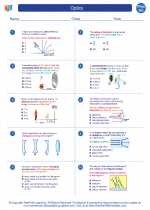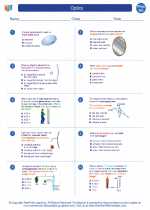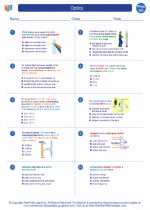Noise in Physics
Noise in physics refers to any unwanted or random disturbance that obscures or reduces the clarity of a signal. It can manifest in various forms, such as electrical noise in circuits, thermal noise in electronic devices, or environmental noise in communication systems.
Types of Noise
1. Electrical Noise: This type of noise arises from random electrical fluctuations in electronic circuits, leading to unwanted signals or interference.
2. Thermal Noise: Also known as Johnson-Nyquist noise, it is caused by random thermal motion of charge carriers in conductors and resistors.
3. Environmental Noise: This includes background noise from the surroundings, such as air traffic, machinery, or natural phenomena, which can affect the transmission of signals.
Effects of Noise
1. Degradation of Signal Quality: Noise can distort or degrade the quality of signals, leading to errors in communication or data transmission.
2. Interference: In electronic devices and communication systems, noise can interfere with the intended signals, causing disruptions or inaccuracies.
3. Signal-to-Noise Ratio: The presence of noise affects the signal-to-noise ratio, which is crucial in determining the clarity and reliability of a signal.
Strategies to Minimize Noise
1. Shielding: Using shielding materials or enclosures can help reduce the impact of external noise on electronic devices and circuits.
2. Filtering: Employing filters and signal processing techniques can help remove or minimize unwanted noise from signals.
3. Grounding and Isolation: Proper grounding and isolation techniques can reduce electrical noise in circuits and systems.
4. Amplification: In some cases, amplifying the signal can help overcome the effects of noise, especially in communication systems.
Study Guide
Here are some key points to focus on while studying noise in physics:
- Understand the different types of noise and their sources.
- Learn about the effects of noise on signal quality and communication systems.
- Explore strategies and techniques to minimize or mitigate the impact of noise.
- Practice solving problems related to signal-to-noise ratio and noise reduction methods.
- Examine real-world applications of noise control and its significance in various fields, such as telecommunications, electronics, and data transmission.
By mastering the concepts of noise and its management, you'll gain a deeper understanding of signal processing and communication systems in the field of physics.
.


